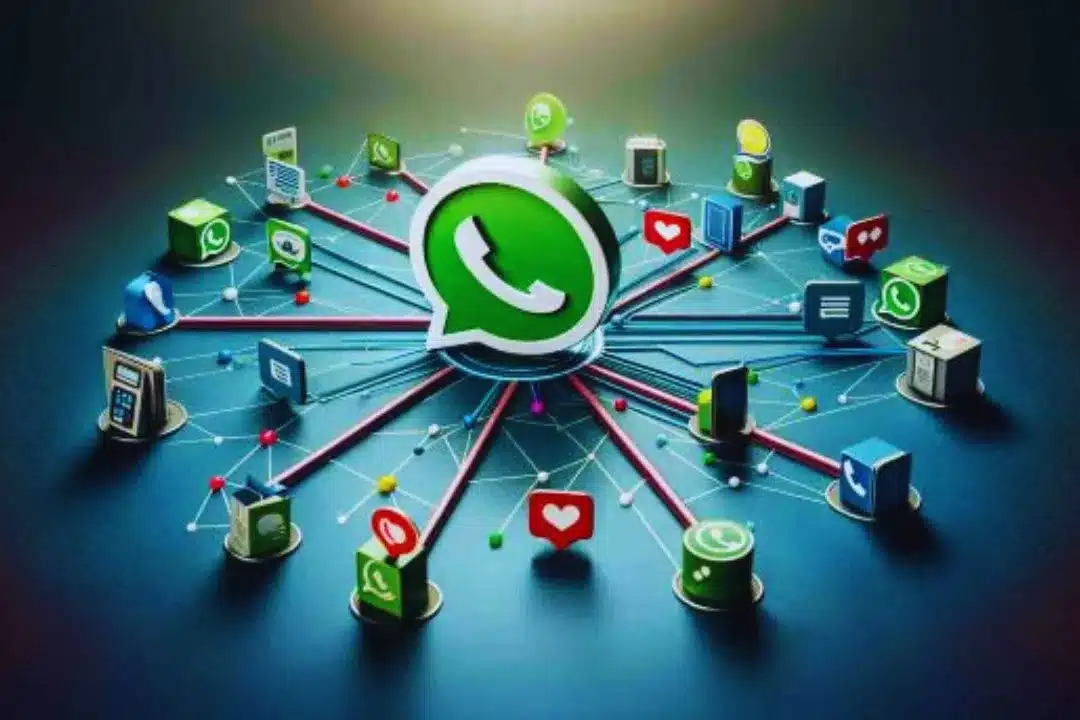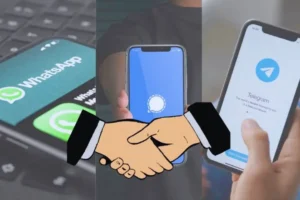In 2025, the world of digital communication has taken another big step forward with the launch of WhatsApp interoperability messaging. This feature is part of a broader European Union regulation called the Digital Markets Act (DMA), which ensures that users can communicate seamlessly between apps like WhatsApp, Messenger, Signal, Telegram, and more.
The goal is to remove app isolation and make messaging as simple as sending an SMS—regardless of which platform the other person is using. This revolutionary change will transform how billions of people interact across personal, professional, and business communication channels.
whatsapp interoperability messaging apps
WhatsApp interoperability messaging apps allow users to chat seamlessly across platforms like Signal, Telegram, and Messenger without switching applications. This 2025 update ensures smooth communication while keeping end-to-end encryption intact. By connecting different services, WhatsApp offers greater convenience, user freedom, and business opportunities, making digital messaging more inclusive and globally accessible across multiple platforms.
Quick Table on Whatsapp Interoperability Messaging 2025
| Attribute | Information |
| Feature Name | WhatsApp Interoperability Messaging |
| Year of Rollout | 2025 |
| Main Goal | Cross-app communication |
| Supported Apps Initially | Messenger, Signal, Telegram |
| Compliance Law | EU Digital Markets Act (DMA) |
| Security Protocol | End-to-End Encryption (E2EE) |
| Available Regions | Europe first, global rollout expected |
| Target Users | Individual, Business, Enterprise |
| Message Types Supported | Text, Voice, Media, Files |
| Future Expansion | Groups, Voice & Video Calls |
What is Whatsapp Interoperability Messaging?
WhatsApp interoperability messaging is a feature that allows users of WhatsApp to send and receive messages with people on other messaging platforms. For example, a WhatsApp user can send a message to someone on Signal without needing to download or switch apps.
The interoperability is designed to make messaging platform-independent, giving users more freedom, reducing monopolistic practices, and fostering healthy competition among messaging apps.
Why Was Interoperability Introduced in Whatsapp?
The primary reason is compliance with the Digital Markets Act, which aims to prevent big tech companies from locking users into their ecosystems. By opening communication channels, users get more choice, while companies are encouraged to improve their platforms instead of restricting users.
WhatsApp, with over 2.8 billion users worldwide, is one of the biggest messaging apps. Enabling interoperability ensures it adapts to future communication standards while maintaining user trust.
How does whatsapp messaging work
WhatsApp messaging works by sending texts, voice notes, images, and files through the internet using end-to-end encryption. Messages are delivered instantly via secure servers, ensuring only the sender and receiver can access them. The app also supports voice and video calls, media sharing, and now interoperability, making communication seamless across different platforms in 2025.
Key Features of Whatsapp Interoperability Messaging 2025
Cross-Platform Messaging: Send and receive messages between WhatsApp, Signal, Messenger, and Telegram.
End-to-End Encryption (E2EE): Security remains a top priority, and all cross-platform messages will still be encrypted to maintain privacy.
Media Sharing Across Apps: Not just text, but users can share images, voice notes, files, and videos across platforms seamlessly.
Notifications and Syncing: Messages from other apps will appear inside WhatsApp’s interface, reducing the need to juggle multiple apps.
Gradual Rollout: Initially, one-to-one chats are supported, but group chats, voice calls, and video calls will be added in later stages.
whatsapp not syncing messages
When WhatsApp is not syncing messages, it usually happens due to poor internet connectivity, outdated app versions, or incorrect phone settings. Users can fix this by checking Wi-Fi or mobile data, clearing cache, updating WhatsApp, or enabling background data. Ensuring proper device time settings also helps restore smooth synchronization and prevents missed or delayed messages.
Benefits of Whatsapp Interoperability Messaging
- Simplified Communication: No more downloading multiple apps—communicate with anyone regardless of their platform.
- Business Advantages: Companies can reach customers across different apps without forcing them to install WhatsApp.
- Cost Efficiency: One app handling multiple networks reduces storage and system resource usage on devices.
- Better User Freedom: Users can choose their favorite messaging app without worrying about accessibility.
- Inclusive Global Connectivity: This bridges the gap between regions where different apps dominate. For example, WhatsApp in India, Telegram in Russia, and Signal in privacy-focused countries.
Challenges in Implementing Interoperability
- Security Risks – Maintaining E2EE across different platforms is technically complex.
- Spam and Fraud—Increased accessibility could be misused by spammers.
- User Experience Consistency—Different apps have unique features that may not translate perfectly.
- Compliance Delays – Some regions outside the EU may take time to adopt.
- Scalability Issues – Managing billions of cross-platform messages daily is challenging.
How Does Whatsapp Ensure Security in Interoperability?
WhatsApp ensures that security remains at the core of interoperability by continuing its commitment to end-to-end encryption. This encryption guarantees that only the sender and the recipient can read the conversation, even when the message passes through different platforms.
To strengthen this system, the company collaborates with leading encryption experts and relies on the widely trusted Signal protocol. This approach preserves user privacy, reduces potential security risks, and builds confidence as messaging expands across multiple apps.
Impact on Businesses and Enterprises
WhatsApp interoperability will be a game-changer for businesses. For example:
- Customer Support: Businesses can communicate with customers regardless of whether they use WhatsApp, Telegram, or Messenger.
- Marketing Campaigns: Multi-platform reach through a single app saves time and resources.
- Collaboration: Enterprises using different tools can interact without switching apps.
Future of Whatsapp Interoperability Messaging in 2025 and Beyond
WhatsApp’s interoperability is only at the beginning stage. By 2026, we can expect:
- Group Interoperability – Group chats across different apps.
- Voice & Video Calls – High-quality calls between apps.
- AI-Based Spam Detection—Smarter systems to prevent fraud.
- Business API Expansion – Unified customer management systems.
- Global Rollout—Extending beyond Europe to Asia, Africa, and the Americas.
Conclusion
WhatsApp interoperability messaging in 2025 marks a historic transformation in digital communication. By bridging messaging platforms, it offers freedom, inclusivity, and efficiency for billions of users. Businesses, enterprises, and individuals alike will benefit from seamless interaction, while security protocols keep privacy intact.
As the rollout expands globally, this feature will redefine how the world communicates, making messaging truly universal, accessible, and future-ready.
FAQs on Whatsapp Interoperability Messaging
Q1. What is WhatsApp interoperability messaging?
Ans: It is a new feature that allows WhatsApp users to send and receive messages with users of other platforms like Signal, Telegram, and Messenger without switching apps.
Q2. Is interoperability messaging secure?
Ans: Yes, WhatsApp maintains end-to-end encryption across apps, ensuring that only the sender and receiver can read the messages.
Q3. Which apps are supported in the first phase?
Ans: Initially, WhatsApp interoperability will connect with Messenger, Signal, and Telegram, with more apps likely to be added in the future.
Q4. Will this feature be available worldwide?
Ans: The rollout starts in Europe under the Digital Markets Act, but global expansion is expected by 2026.
Q5. Can businesses benefit from interoperability messaging?
Ans: Absolutely. Businesses can reach customers across different apps, improving customer support and marketing efficiency.









